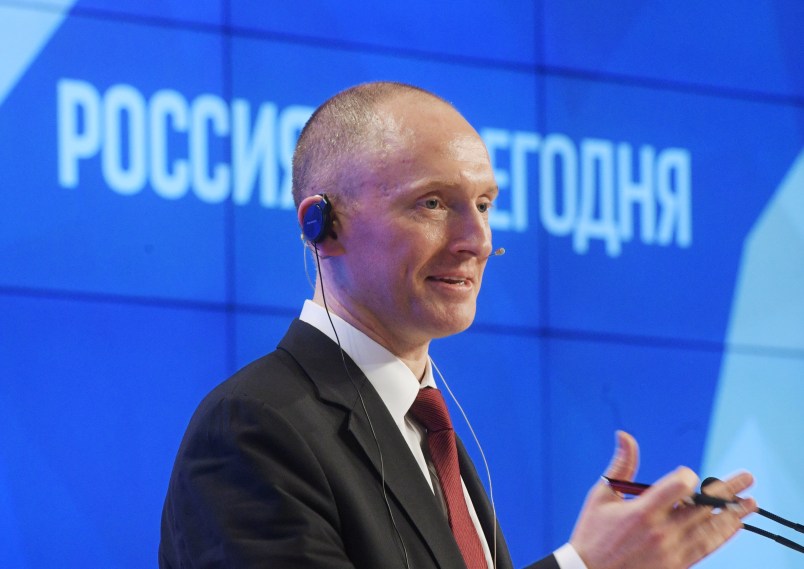The Washington Post published a story this evening that adds a significant new piece to the Trump puzzle. The headline is that in the summer of 2016 the FBI obtained a FISA warrant to monitor the communications of Carter Page, a key player in the Trump/Russia story. Obtaining a FISA warrant is significant in itself since to do so the government must show probable cause that the target of the warrant is acting as the agent of a foreign power. What this means, what the government has to show is set forth very specifically in statute.
Let me run through what I believe are the key points in this story.
1. The article says that Page was the “only American to have had his communications directly targeted with a FISA warrant in 2016 as part of the Russia probe.” That’s a significant data point in itself since this appears to show categorically that none of the other frequently mentioned players were surveilled directly.
2. The warrant was apparently obtained in July 2016. At one point the article refers to the FISA warrant being obtained “last summer”. But later it says the application for a FISA warrant “showed that the FBI and the Justice Department’s national security division have been seeking since July to determine how broad a network of accomplices Russia enlisted in attempting to influence the 2016 presidential election.” Ergo, I think we know that the application was at least made in July. Conceivably it was granted in August. I’m not sure how long a period there can be between the two.
What else was happening in July? The first Wikileaks release of DNC emails was on July 22nd. Page himself traveled to Moscow in early July and gave a speech there on July 7th. July was a critical month on many fronts as you can see here. Was it one of these events that prompted the FBI to seek the FISA warrant? Some mix of both? Neither?
3. The Post reports, according to unnamed officials, that “the government’s application for the surveillance order targeting Page included a lengthy declaration that laid out investigators’ basis for believing that Page was an agent of the Russian government and knowingly engaged in clandestine intelligence activities on behalf of Moscow.”
One part of the FBI’s case was the 2013 case – recently reported – in which Russian intelligence operatives in the US met with and apparently sought to recruit Page. But it says “the application said Page had other contacts with Russian operatives that have not been publicly disclosed.”
On first blush, it’s not hard to imagine that the FBI’s attention might be peaked by seeing someone who had earlier met with Russian intelligence operatives and been the target of recruitment popping up as a major presidential candidate’s advisor. But that doesn’t sound like it would have been enough to seek a FISA warrant, let alone get one. The key point I think is that according to the Post’s account of knowledgable sources, the FBI believed it had evidence that Page “knowingly engaged in clandestine intelligence activities on behalf of Moscow.” That’s much more that crossing paths with the wrong people.
For the moment, I don’t think this scoop dramatically transforms our understanding of the broader story. But it confirms and adds weight to a key part of it. The piece also provides some interesting details about Page’s attendance at a number of campaign policy meetings. But these seem about what we’d expect of a named advisor. Not surprising but good data points to have.
The oddity of Page is that he certainly wasn’t operating under deep cover. Indeed, he paraded his pro-Russian views widely. In other words, it’s not like Page was a mole – the most Russophobic advisor who turned out to be in Moscow’s employ. Page was right out in the open as a major critic of US policy who believed and said to all who’d listen that the US should be far friendlier to Russia. Other oddities are his constant press appearances. Why did he go on Chris Hayes show a few weeks ago? Why has he made so many press appearances, almost all of which have been handled weirdly and badly? Why hasn’t he just lawyered up and shut up? For that matter, if Page was operating as a Russian agent, why would he travel to Moscow to give a speech harshly critical of the US a week before the convention? Needless to say, that’s certainly going to draw attention. It’s all a mystery.






